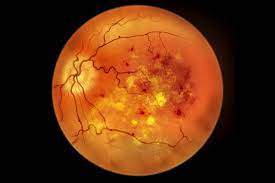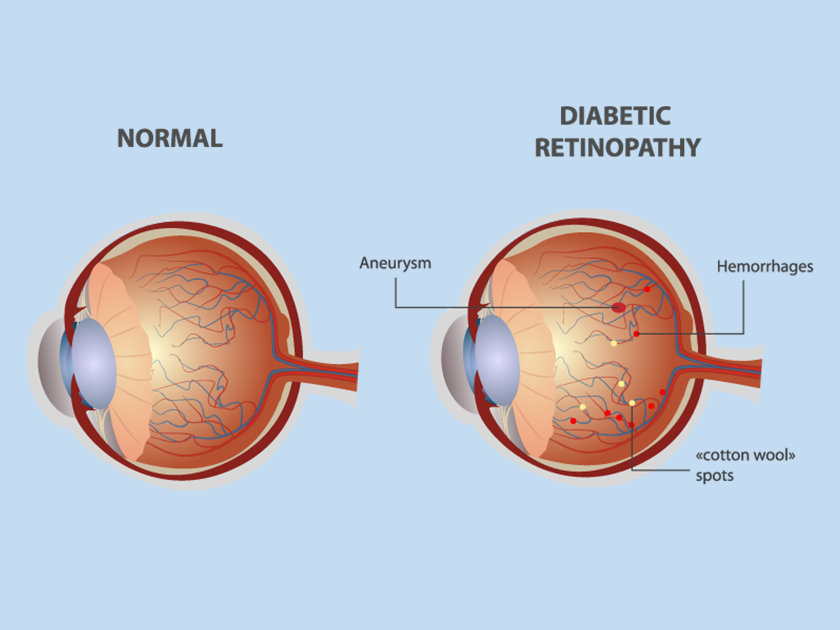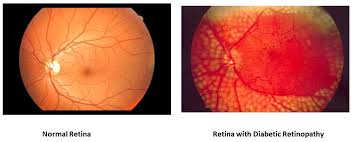Diabetic Retinopathy
Welcome to Bright Vision Care Hospital, where we are dedicated to preserving your vision and enhancing your eye health. In this comprehensive guide, we will explore a critical eye condition called "Diabetic Retinopathy." Our mission is to provide you with valuable information about diabetic retinopathy, including its symptoms, effective do's and don'ts for management, recommended eye exercises for support, and expert care to protect your vision.
Diabetic retinopathy is a serious eye condition that affects individuals with diabetes, but with early detection and proper care, its impact can be minimized.
Symptoms
Blurriness in vision, especially during the early stages of diabetic retinopathy.
FloatersThe appearance of dark spots or strings in your field of vision.
Impaired Color VisionDifficulty perceiving colors or noticing changes in color perception.
Dark or Empty AreasThe development of dark or empty areas in your vision.
Sudden Vision LossIn advanced stages, sudden and severe vision loss can occur.


Do's & Dont's
Do's
Regular Eye ExaminationsIf you have diabetes, schedule annual eye examinations to monitor the health of your retina and detect diabetic retinopathy early.
Manage Blood SugarKeep your blood sugar levels within the target range advised by your healthcare provider.
Blood Pressure ControlMaintain healthy blood pressure levels as high blood pressure can exacerbate diabetic retinopathy.
Follow Treatment PlansAdhere to any prescribed treatment plans, including medication and lifestyle changes, recommended by your healthcare team.
Protect Your EyesWear sunglasses with UV protection and a wide-brimmed hat to shield your eyes from harmful UV rays.
Dont's
Don't Skip Eye ExamsDo not skip or delay eye examinations, even if you believe your diabetes is well-managed.
Limit Self-MedicationAvoid self-prescribing eye drops or medications without consulting your eye specialist.
Don't SmokeSmoking can worsen diabetic retinopathy. If you smoke, seek support to quit.
Don't Ignore SymptomsIf you experience any changes in your vision or notice symptoms of diabetic retinopathy, do not ignore them. Seek medical attention promptly.
Limit Alcohol ConsumptionExcessive alcohol intake can affect blood sugar levels and exacerbate the condition.
Exercises
TWhile there are no specific exercises to treat diabetic retinopathy, maintaining overall eye health is essential. Consider these practices:
Discuss with your healthcare provider the use of supplements that support eye health, such as those containing antioxidants like vitamin C and E.
Regular Eye RestEnsure you get adequate sleep and take breaks during extended periods of screen time to reduce eye strain.
Healthy DietConsume a balanced diet rich in fruits, vegetables, and omega-3 fatty acids to support eye health.
Physical ActivityEngage in regular physical activity to promote overall health, which can indirectly benefit your eyes.
Stress ManagementPractice stress-reduction techniques, such as mindfulness or yoga, to manage stress, which can impact diabetes and eye health.

Summary
Diabetic retinopathy is a serious eye condition that requires diligent management, especially for individuals with diabetes. At Bright Vision Care Hospital, we are committed to providing expert care and guidance to protect your vision and overall eye health.